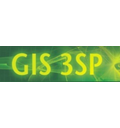Dry January: What Happens To Your Eyes if You Quit Alcohol? : CALIBRE
According to research from Psychology Today, grey drinking is the area between social drinking and complete alcohol dependancy. Alcoholism is often thought of in its most extreme sense – where a person is physically unable to cope day-to-day without drinking – however there is a spectrum when it comes to problematic drinking. Two weeks after cutting alcohol from your lifestyle, your blood pressure will also start to lower and normalise. You may also notice a slight weight loss as you cut out the empty calories; this will also contribute to lowering your blood pressure. Other examinations include a test to measure tear production and the time it takes for your tears to evaporate.
Permanent Effects of Alcohol on Eye Health
Your overall responses can slow down while you are under the influence of alcohol. This means that it can take a little longer than usual for your brain to recognize what you are seeing, and it can take longer than usual for you to decide what to do about it. Alcohol can cause both short- and long-term vision problems. These https://rehabliving.net/strattera-atomoxetine-non-stimulant-adhd/ correlations may contribute to several possible complications or effects on the eyes. « If you don’t feel sharp, if you’re beginning to lose words, no matter what your age that means alcohol may be a problem for you, » he continued. The following explains how your body reacts and recovers from an alcohol-filled festive season.
Other Retinal Conditions
Low to moderate alcohol consumption may prevent some eye diseases such as central retinal vein occlusion (RVO), the blockage of eye veins. Alcoholic beverages such as beer, wine, and distilled spirits contain ethyl alcohol or ethanol. Though rare, deceitful alcohol makers can use methanol in place of alcohol as they physically appear similar.
Additional side effects of alcohol on vision and eye sight
The exact relationship between alcohol abuse and these diseases isn’t known, but researchers suggest it may be due to a vitamin A deficiency, which is often correlated with alcoholism. Bloodshot eyes, dryness, or blurred and double vision are common side effects of drinking alcohol. However, there are long-term effects on eyesight from excessive alcohol consumption, potentially leading to permanent vision impairments, dry eyes, and optic neuropathy. Some temporary vision and eye health problems from drinking can be easily treated. For example, many eye care products can treat dry eyes and reduce redness.To avoid the more severe health consequences, have your eyes checked annually, whether you drink heavily or not.
Eye pressure
Also referred to as tobacco-alcohol amblyopia, people who drink or smoke in excess can develop optic neuropathy, though it is rare. Studies have shown that vision loss can be a result of a nutritional deficiency, and some professionals believe that the condition develops because of the toxic effects of alcohol and tobacco. Long-term heavy drinking can cause interference between the brain and the eyes. It may also damage or speed up the aging of various structures inside the eye, such as the lens, retina, and optic nerve. Short-term effects may result from intoxication, which people often describe as “being drunk.” This occurs when alcohol affects the central nervous system. A person can become intoxicated even with moderate drinking and may experience temporary disturbances to their vision.
Other times, however, your doctor may need to run tests to determine the underlying cause. This includes a comprehensive eye exam to measure visual acuity, as well as a test to check your optic nerve, cornea, and retina. Sleeping in your contact lenses can reduce the oxygen supply to your eyes, leading to dry eyes and blurry vision after waking up.
These might involve the effects of COVID-related blood clots that travel to the eye, causing blockages, inflammation, and cell death. Reducing high blood pressure can ease hypertension, and hypertensive retinopathy, https://rehabliving.net/ which causes damage to the blood vessels in the retina, the area at the back of the eye that allows you to focus images. This can trigger blurry vision in the mornings, as well as tearing and eye burning.
- For example, many people have occult eye muscle imbalances, but the sober brain can preserve crisp, single vision.
- If you’re pregnant, you shouldn’t take blurry vision lightly.
- For example, it may only take two drinks in an hour for a 100-pound woman to experience blurred vision or up to five drinks in an hour for a 240-pound man.
Alcohol can impair the immune system and reduce the body’s ability to fight off bacteria and diseases, including those affecting the eyes. Some individuals may suffer altered perceptions of color and light after drinking alcohol. A drunk person might experience difficulties distinguishing between colors or experience halos around lights as a result of liquor consumption. Your dry eye symptoms may persist if you stop drinking or experience alcohol withdrawal.
When your vision is blurry, it becomes difficult for you to see sharply or clearly. The problem can be fixed somewhat with special eyeglasses or contact lenses. Individuals who consume alcohol are more likely to develop AMD that progressively gets worse leading to blindness in some cases. Twitching is usually a mild condition, involving involuntary spasms or contractions of the muscles around the eye.
It can lead to eye pain, eye floaters, loss of vision in one or both eyes and loss of color perception. It doesn’t happen often, but when alcohol is involved, you’re at a higher risk. Sure, we know that drinking affects our vision and can cause blurred or double vision, especially at night. This is sometimes known as “beer goggles.” After all, impaired vision and a slowed reaction time are why drinking and driving are often a fatal combination.
Formerly, Tyler studied Aeronautics (just like his brother) with the dream of becoming an airline pilot, however, after 9/11 his career path changed. After graduating top of his class with a Bachelor of Science in Informational Technologies and Administrative Management, he joined Rebuild Your Vision in 2002. Because your reaction time is slowed when you drink, so are your eyes.
After drinking, tears can contain traces of alcohol, which can further trigger inflammation and cause damage to the eyes. Alcohol may also affect your eyesight in the long term, going beyond temporary symptoms to influencing your likelihood to develop serious eye conditions. Blurred vision typically occurs at 0.10% blood alcohol level. The number of drinks it takes to get to that level varies based on sex, weight and other factors. For example, it may only take two drinks in an hour for a 100-pound woman to experience blurred vision or up to five drinks in an hour for a 240-pound man. Intoxication is responsible for short-term effects such as blurred vision.
Whether you consume just a couple of drinks or involve yourself in heavy drinking, alcohol can affect your vision and eye health. A lot of people consume alcohol for the sake of having a good time and enjoying themselves. When taken in excess, alcohol causes serious damage and injury. Scientific studies have shown that heavy drinkers are likely to develop glaucoma, a group of conditions that damage the optic nerves.
Individuals with pre-existing health issues, such as liver damage, kidney disease, migraines, diabetes, or poor vision, may experience more severe impacts from alcohol on their eyesight. The risk of developing age-related cataracts changes based on the amount of alcohol a person drinks. An Optometry and Vision Science study found that moderate drinking may have a protective effect against cataracts. The study also found an increased risk of developing cataracts among heavy drinkers — those who drank more than two drinks (20 grams of alcohol) a day.
It varies in frequency and duration, ranging from a few seconds to several minutes. Find out why Florida Eye Specialists & Cataract Institute is the name more Tampa Bay residents have trusted with their eye care since 1981. Alcohol can trigger an immediate migraine in some people or cause a « hangover migraine » later, according to the American Migraine Foundation. The delay is only a few milliseconds, but it can make a difference in your ability to carry out normal activities, For example, you may also experience delayed reactions while driving. Drinking too much alcohol can alter your contrast sensitivity, or how precise you can discern between shades of gray. American Addiction Centers (AAC) is committed to delivering original, truthful, accurate, unbiased, and medically current information.
Drink plenty of water to stay hydrated and reduce liquor effects. Alcohol is a nervous system depressant that affects the functioning of organs, including the eyes. When consuming alcohol in moderation, the body can metabolize it and excrete it through the liver and kidneys. In contrast, when consumption is excessive, that often leads to a buildup of toxins causing alcohol eyesight damage and eye problems. Oftentimes even small amounts of liquor or spirits could cause puffy and bloodshot ‘alcohol eyes’. If you not only drink, but also smoke excessively, you may also suffer from a painless but permanent loss of vision known as optic neuropathy.
That’s a common eye condition where the eye’s lens becomes cloudy and obscures vision. Cataracts are relatively more common in heavy drinkers than in moderate or non-drinkers. Toxic optic neuropathy is a condition where alcohol damages the optic nerve. The optic nerve is especially susceptible to damage from Methanol (a type of alcohol, which is used for paints, glue and disinfection). The concentration of Methanol may be more in homemade brewed alcoholic beverages. Since the optic nerve transmits visual information to the brain, intoxication leads to deteriorating vision.
For example, after just 24 hours of no alcohol, your blood sugar levels will normalise, and blurred vision caused by alcohol intake will disappear. Drinking alcohol excessively (frequently or in large amounts) can have harmful effects on your body, including your eyes. Heavy alcohol use may cause problems with your vision and overall eye health. Some temporary effects occur when you drink, and other effects take time to develop and can be permanent. This article describes the potential effects of alcohol on your eyes.
See a doctor if your blurry vision occurs regularly, lasts throughout the day, or if you experience other symptoms along with blurriness. For example, if cornea swelling causes blurry vision, your doctor may prescribe eyedrops to remove excess water from your cornea. In the case of eye allergies, however, taking an antihistamine can reduce allergy symptoms and stop blurriness. For example, your doctor may check your blood glucose level if you have blurry eyes in the morning accompanied by fatigue, increased urination, and excessive hunger.
But sudden and significant changes in the number or type of floaters, along with flashes of light or vision loss, can be signs of a potentially serious condition such as retinal detachment. Age-Related Macular Degeneration (AMD), is a progressive eye condition. Understanding the potential risks of alcohol consumption concerning AMD is fundamental for promoting eye health and making better lifestyle choices. Studies suggest alcohol in excess can trigger inflammation, deplete essential nutrients, and lead to adverse health effects. Genetic predisposition also plays a role in AMD development.









